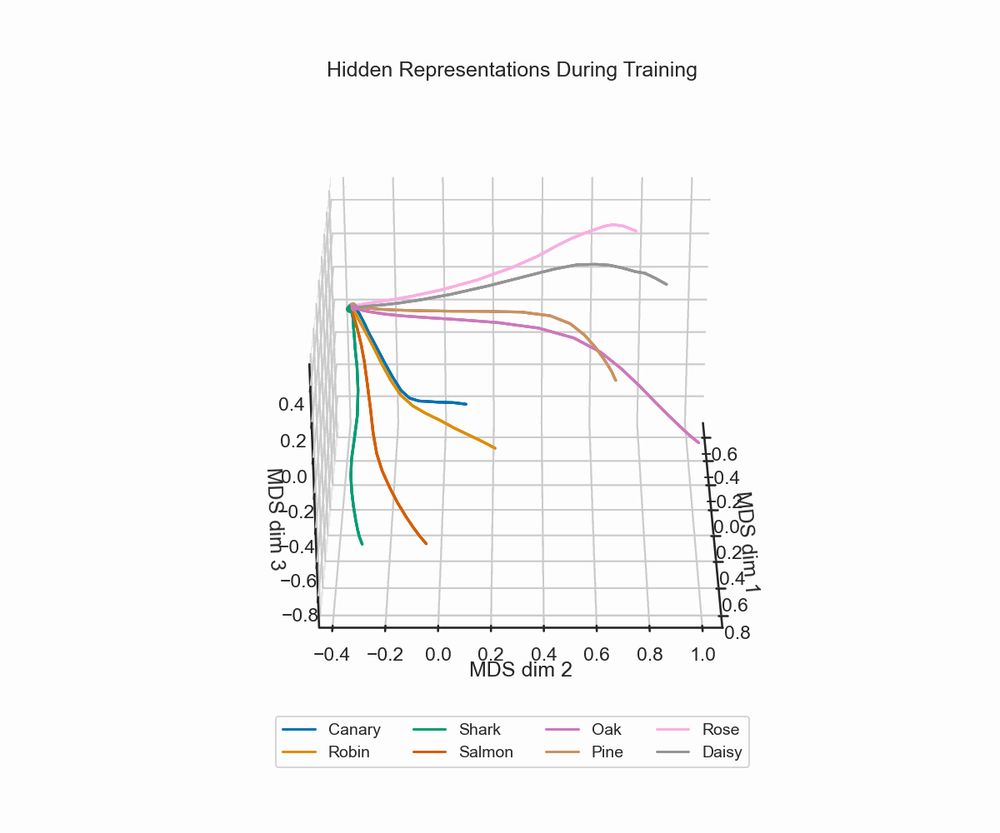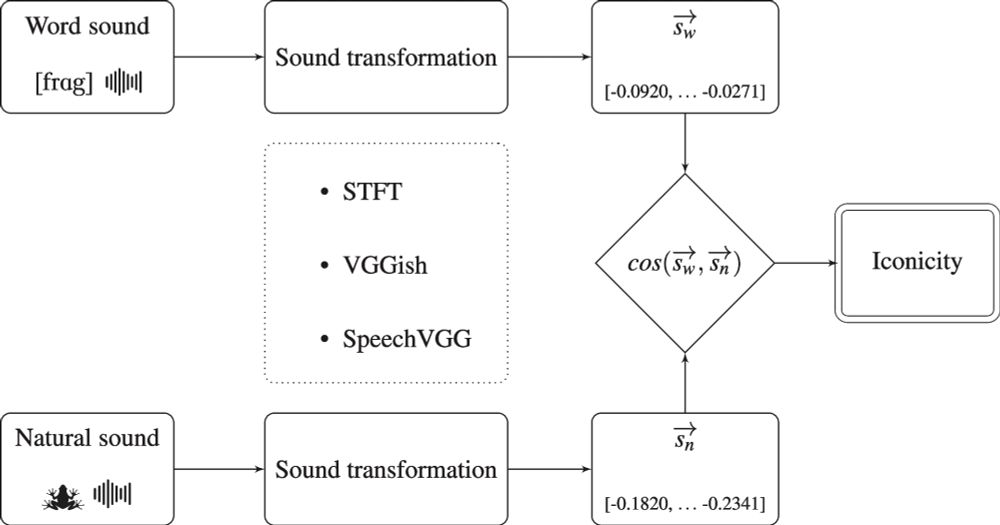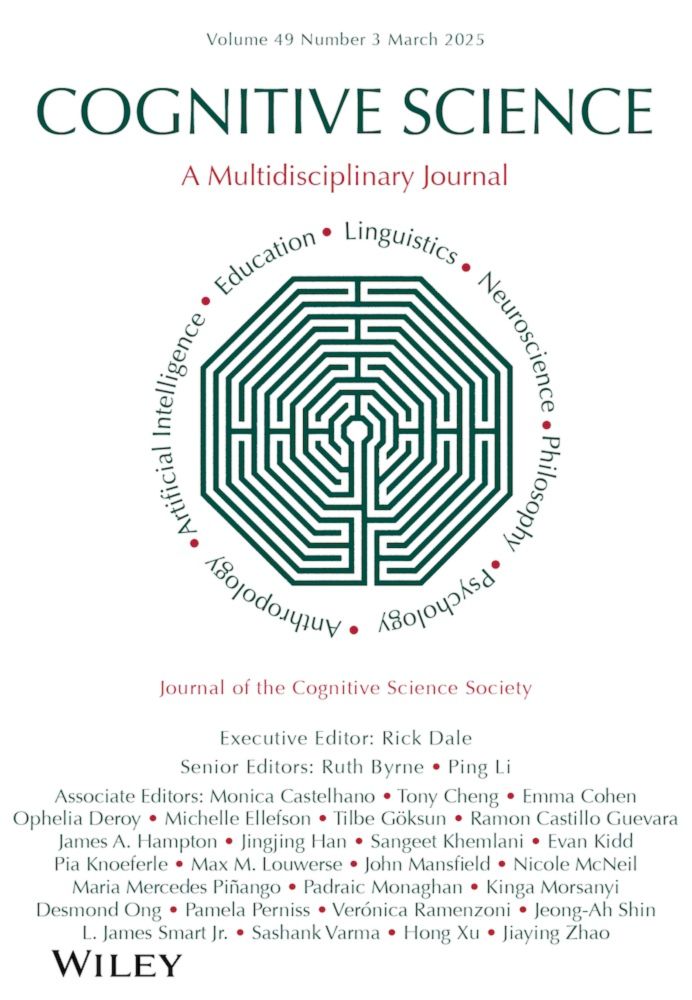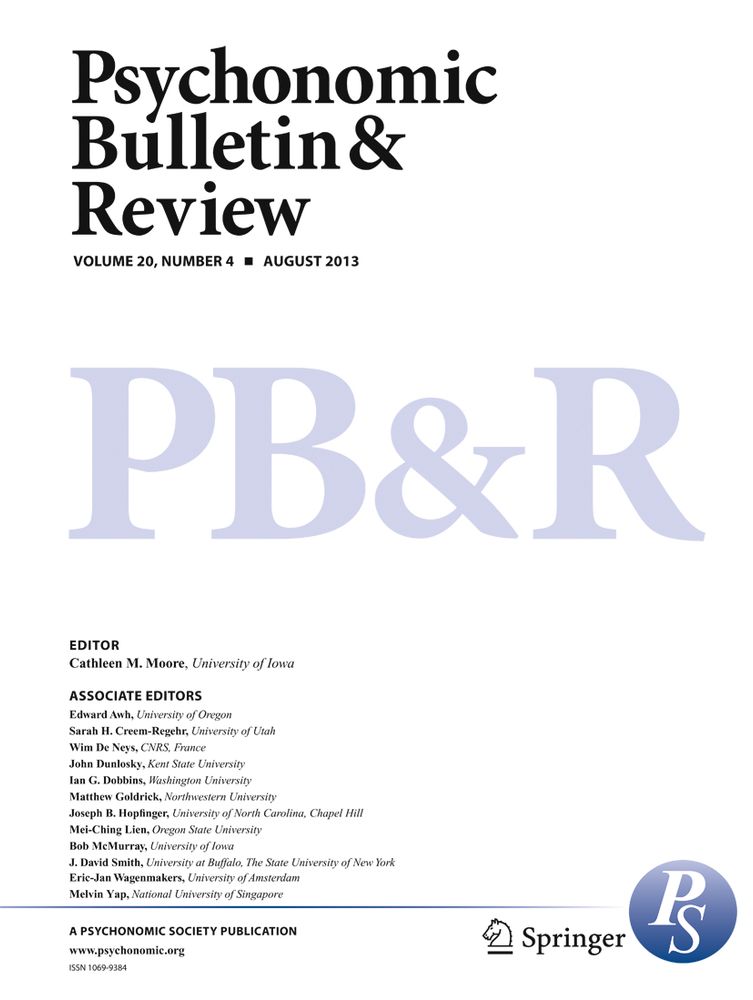
https://bravenewword.unimib.it/
@mariakna.bsky.social, @kathyrastle.bsky.social
How does morphological knowledge serve as a powerful heuristic for vocabulary growth and reading efficiency? How do readers navigate noisy text to learn the meanings of affixes?
www.sciencedirect.com/science/arti...

@mariakna.bsky.social, @kathyrastle.bsky.social
How does morphological knowledge serve as a powerful heuristic for vocabulary growth and reading efficiency? How do readers navigate noisy text to learn the meanings of affixes?
www.sciencedirect.com/science/arti...
The latest upload features Prof. Giovanni Cassani (Tilburg University), discussing how humans and LLMs interpret novel words in context.
www.youtube.com/channel/UClH...

The latest upload features Prof. Giovanni Cassani (Tilburg University), discussing how humans and LLMs interpret novel words in context.
www.youtube.com/channel/UClH...
🗓️ Today, Jan 19, 2:00 PM CET 📍 Bicocca (U6 - Sala Lauree) 🌐 Join online: meet.google.com/suf-ybti-oop

🗓️ Today, Jan 19, 2:00 PM CET 📍 Bicocca (U6 - Sala Lauree) 🌐 Join online: meet.google.com/suf-ybti-oop
Our new Cerebral Cortex paper shows the left inferior frontal gyrus (BA45) does it automatically, even when task-irrelevant. We used fMRI + computational models.
Congrats Marco Ciapparelli, Marco Marelli & team!
doi.org/10.1093/cerc...

Our new Cerebral Cortex paper shows the left inferior frontal gyrus (BA45) does it automatically, even when task-irrelevant. We used fMRI + computational models.
Congrats Marco Ciapparelli, Marco Marelli & team!
doi.org/10.1093/cerc...
Thrilled to see this article with @ruimata.bsky.social out. We discuss how LLMs can be leveraged to map, clarify, and generate psychological measures and constructs.
Open access article: doi.org/10.1177/0963...

Thrilled to see this article with @ruimata.bsky.social out. We discuss how LLMs can be leveraged to map, clarify, and generate psychological measures and constructs.
Open access article: doi.org/10.1177/0963...
Did you know Germans averaged 53 taboo words, while Brits e Spaniards listed only 16?
Great to see the work of our colleague Simone Sulpizio & Jon Andoni Duñabeitia highlighted! 👏
www.theguardian.com/science/2025...

Did you know Germans averaged 53 taboo words, while Brits e Spaniards listed only 16?
Great to see the work of our colleague Simone Sulpizio & Jon Andoni Duñabeitia highlighted! 👏
www.theguardian.com/science/2025...
He'll discuss "Making sense from the parts: What Chinese compounds tell us about reading," exploring how we process ambiguity & meaning consistency
🗓️ 27th Oct ⏰ 2PM (CET)📍UniMiB 💻 meet.google.com/zvk-owhv-tfw

He'll discuss "Making sense from the parts: What Chinese compounds tell us about reading," exploring how we process ambiguity & meaning consistency
🗓️ 27th Oct ⏰ 2PM (CET)📍UniMiB 💻 meet.google.com/zvk-owhv-tfw
It's geared toward psychologists & linguists and covers extracting embeddings, predictability measures, comparing models across languages & modalities (vision). see examples 🧵

It's geared toward psychologists & linguists and covers extracting embeddings, predictability measures, comparing models across languages & modalities (vision). see examples 🧵
arxiv.org/abs/2502.11856

arxiv.org/abs/2502.11856
academic.oup.com/cercor/artic...

academic.oup.com/cercor/artic...




w/@mariannabolog.bsky.social is now online & forthcoming in the #ElsevierEncyclopedia of Language & Linguistics
🔍 Theoretical overview, quantification tools, and behavioral evidence on specificity.
👉 Read: urly.it/31c4nm
@abstractionerc.bsky.social

w/@mariannabolog.bsky.social is now online & forthcoming in the #ElsevierEncyclopedia of Language & Linguistics
🔍 Theoretical overview, quantification tools, and behavioral evidence on specificity.
👉 Read: urly.it/31c4nm
@abstractionerc.bsky.social
@ruimata.bsky.social and I propose a solution based on a fine-tuned 🤖 LLM (bit.ly/mpnet-pers) and test it for 🎭 personality psychology.
The paper is finally out in @natrevpsych.bsky.social: go.nature.com/4bEaaja

@ruimata.bsky.social and I propose a solution based on a fine-tuned 🤖 LLM (bit.ly/mpnet-pers) and test it for 🎭 personality psychology.
The paper is finally out in @natrevpsych.bsky.social: go.nature.com/4bEaaja
Watch the full presentation here:
www.youtube.com/watch?v=VJTs...

Watch the full presentation here:
www.youtube.com/watch?v=VJTs...
With Marco Marelli (@ercbravenewword.bsky.social), @wwgraves.bsky.social & @carloreve.bsky.social.
doi.org/10.1093/cerc...
With Marco Marelli (@ercbravenewword.bsky.social), @wwgraves.bsky.social & @carloreve.bsky.social.
doi.org/10.1093/cerc...
Congratulations on a fascinating talk!

Congratulations on a fascinating talk!
Watch the full presentation here:
www.youtube.com/watch?v=zN7G...

Watch the full presentation here:
www.youtube.com/watch?v=zN7G...
Exploring form-meaning interactions in novel word learning and memory search
Abhilasha Kumar (Assistant Professor, Bowdoin College)
A fantastic opportunity to delve into how we learn new words and retrieve them from memory.
💻 Join remotely: meet.google.com/pay-qcpv-sbf

Exploring form-meaning interactions in novel word learning and memory search
Abhilasha Kumar (Assistant Professor, Bowdoin College)
A fantastic opportunity to delve into how we learn new words and retrieve them from memory.
💻 Join remotely: meet.google.com/pay-qcpv-sbf
A computational approach to morphological productivity using the Discriminative Lexicon Model
Professor Harald Baayen (University of Tübingen, Germany)
🗓️ September 8, 2025
2:00 PM - 3:30 PM
📍 UniMiB, Room U6-01C, Milan
🔗 Join remotely: meet.google.com/dkj-kzmw-vzt

A computational approach to morphological productivity using the Discriminative Lexicon Model
Professor Harald Baayen (University of Tübingen, Germany)
🗓️ September 8, 2025
2:00 PM - 3:30 PM
📍 UniMiB, Room U6-01C, Milan
🔗 Join remotely: meet.google.com/dkj-kzmw-vzt
slides: shorturl.at/q2iKq
code (with colab support!): github.com/qihongl/demo...

slides: shorturl.at/q2iKq
code (with colab support!): github.com/qihongl/demo...
She investigates how meanings are encoded and evolve, combining linguistic and computational approaches.
Her work spans diachronic modeling of lexical change in Mandarin and semantic transparency in LLMs.
🔗 research.polyu.edu.hk/en/publicati...

She investigates how meanings are encoded and evolve, combining linguistic and computational approaches.
Her work spans diachronic modeling of lexical change in Mandarin and semantic transparency in LLMs.
🔗 research.polyu.edu.hk/en/publicati...
Read more: link.springer.com/article/10.3...
@andreadevarda.bsky.social

Read more: link.springer.com/article/10.3...
@andreadevarda.bsky.social
doi.org/10.1111/cogs...

doi.org/10.1111/cogs...


